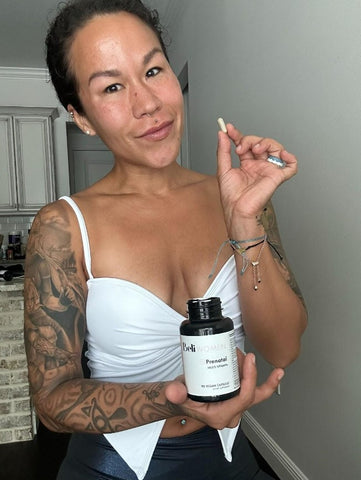The Start of Our IVF Journey
It's been two months since I got married (still need to blog about that!) and we are ready to build our family. I am 34 years old and not getting any younger so I do often feel as if my time is ticking. Building our own family has also been a huge goal that we have discussed over and over again. Now that we are married, we want to explore making that a reality.
We knew early on that my husband and I would have to choose the IVF (in vitro fertilization) route. I have had two children of my own, but my husband has struggled with years of infertility. The cause of his infertility was due to an inguinal hernia surgery that he had when he was younger which most likely resulted in an accidental vasectomy that cannot be reversed.
After multiple tests, he chose to get a biopsy done in late 2022 which showed him having living, viable sperm. The worst case scenario was that he would not have any sperm because previous basic tests showed none. We could not believe it!
No matter what, we did have a Plan B. If he had not had any sperm, we would have opted for a sperm donor, but it was nice to know that having our own was a real option. When we do go through the IVF process, he will repeat this procedure to retrieve the sperm which involves a needle penetrating the testicles in certain areas where pockets of sperm are known to be. They will aspirate the sperm and freeze it until we are ready.

My Journey to IVF
For now, we have been taking really good care of ourselves and prepping our bodies. He is taking a supplement called Beli Vitality for Men. Think of it as like a men's prenatal vitamin, right? It contains ingredients such as selenium, zinc, CoQ10, and folate to support healthy, viable sperm, support motility, protect sperm growth, and support overall preconception wellness. Since we have to go the IVF route, I want to ensure everything is perfect so him taking this is a must for us.
I on the other hand am taking the Beli Women Prenatal which supports conception, baby's growth, egg quality and supports labor, delivery, and breastfeeding. You do not have to be pregnant to take a prenatal vitamin! It is best to start wayyy before you even plan your pregnancy and it is best to continue taking it even during the postpartum stages because your body will need the extra nutrients and vitamins.
Beli also offers prenatal collagen which is super new. I add a scoop to my coffee every morning even though I am not pregnant yet because it makes an awesome creamer. I love that it contains protein as well because women especially have issues with getting enough grams per day. This collagen supports baby's growth, postpartum hair recovery, morning sickness, skin elasticity, and even balances blood sugar. Its a great addition!



